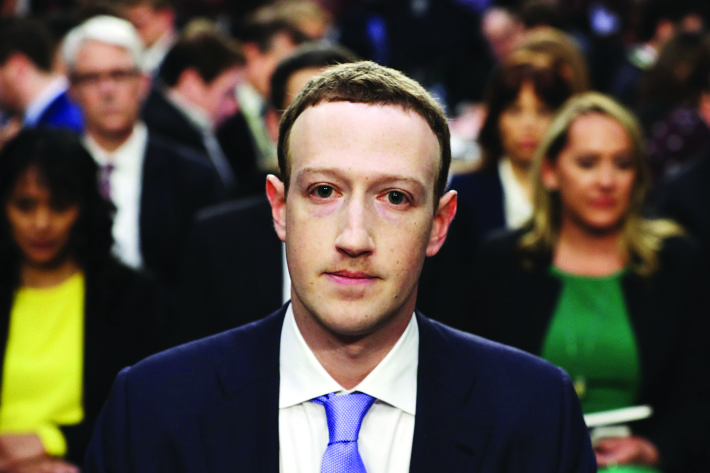Historically, large, unregulated corporations have had detrimental effects on the general public. Because of this, laws such as the antitrust laws, which originated with the Sherman Antitrust Act of 1890, have been put in place with the emergence of new types of companies, such as media and technology corporations, monopolies are harder to identify and even harder to break up.
In the wake of Mark Zuckerberg’s congressional hearing, conversation over whether Facebook should be regulated has increased. Zuckerberg’s hearing was a result of the Cambridge Analytical scandal going viral and putting Facebook’s regulations, or lack thereof, under scrutiny.
There is no question that Facebook needs to be regulated. Zuckerberg stated, “I’m not sure we shouldn’t be regulated. On the basic side, there are things like ads transparency regulation that I would love to see. If you look at how much regulation there is around advertising in TV and print, it’s just not clear why there should be less on the internet. You should have the same level of transparency required.”
However, since the government and Mark Zuckerberg classify Facebook as part of two different forms of business, the government identifying Facebook as media and Zuckerberg identifying Facebook as technology, it is extremely difficult to apply the correct regulations to Facebook.
Some people believe that Facebook should have regulated itself already, and that they need to find a solution to their problem as a corporation. Facebook has begun to initiate proposed self-regulation, in efforts to prove that the company is capable of taking initiative in self-regulation.
The CEO of Apple, Tim Cook, stated, “I think the best regulation is no regulation, is self-regulation. However, I think we’re beyond that here,” in reference to the Facebook situation. This goes to the other point, which states that although Facebook should have regulated themselves as a corporation, it’s too late for Facebook to self-regulate and now need the government to intervene.
Therefore, the question should not be whether Facebook should be regulated, but how it should be regulated. The government appears to be in favor of evaluating Facebook as a media corporation and thus requiring them to be transparent with the donors who sponsor ad campaigns and accounts. On the other hand, Facebook self-identifies as a technology, which would make regulation harder than if they were classified as media. This is because there are no written laws yet that specify how to regulate technologies, given how relatively new technology is, and, as a result, the impact of regulating technologies is yet to be seen.
There are other options for regulating Facebook that include treating it as a monopoly and breaking it up into several smaller companies. However, Facebook has to meet the strict guideline known as the consumer welfare standard in order for this to apply. Because Facebook has yet to actively harm consumers, the option of breaking Facebook into smaller companies is not currently applicable.
I think Facebook should be regulated by the government as a media corporation because for many people it acts as access to news, entertainment, telephone and direct mail. Since it has such an influence on such a large population of people, excess exposure to certain material, such as campaigning, has as much if not a greater, impact on users as seeing commercialized material, like ad campaigns, on the television. Thus, similar to the TV providers’ requirement to make the sponsors transparent to its audience, Facebook should be held to this same standard as well as the other government regulations made specifically for media.



